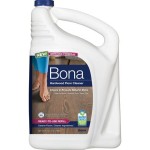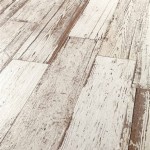Best Wood for Outdoor Deck Flooring
Building a deck is a fantastic way to extend your living space outdoors, creating a beautiful and functional area for relaxation, entertaining, and enjoying the fresh air. The choice of wood for your deck flooring is crucial, as it will determine the longevity, aesthetics, and overall performance of your deck. With many wood species available, selecting the best option for your needs can seem daunting. This article will explore some of the most popular and durable wood choices for outdoor deck flooring, providing insights into their characteristics, advantages, and drawbacks.
Durability and Resistance
Durability and resistance to weathering are paramount for outdoor deck flooring. Exposure to rain, sun, and temperature fluctuations can degrade wood over time, leading to warping, cracking, and rotting. Some wood species are naturally more resistant to these factors than others. Hardwoods, in general, tend to be denser and more durable than softwoods, making them a preferred choice for outdoor applications.
Teak, a tropical hardwood, stands out for its exceptional durability and natural resistance to water, insects, and decay. It boasts a high oil content that protects it from weathering and imparts a beautiful golden hue. However, teak is expensive, and its sourcing can be controversial.
Ipe, another tropical hardwood, is similarly renowned for its longevity and strength. It is even harder and denser than teak, making it incredibly resistant to scratches, dents, and wear. Ipe features a distinctive reddish-brown color that deepens with age. Like teak, Ipe is a premium choice with a high price tag.
Cedar, a softwood, is a popular and budget-friendly option for decking. It possesses natural insect-repelling properties and a pleasant aroma. While cedar is not as durable as hardwoods, it offers good resistance to rot and weathering.
Other durable hardwoods for decking include cumaru, mahogany, and tigerwood, each with its unique characteristics and price point. When selecting wood for your deck, consider the desired level of durability, your budget, and your aesthetic preferences.
Maintenance and Care
The maintenance requirements for outdoor deck flooring vary depending on the wood species. Some woods, like teak and ipe, are naturally low-maintenance, requiring minimal cleaning and occasional oiling to maintain their beauty. Others, such as cedar, may need more frequent maintenance, including sanding, staining, and sealing, to protect them from weathering and discoloration.
Teak, due to its high oil content, naturally develops a protective patina over time. Regular cleaning with soap and water and occasional oiling with teak oil will preserve its luster. Ipe, while requiring minimal maintenance, may benefit from an occasional sealing with a penetrating oil to enhance its water resistance.
Cedar, while initially attractive, tends to weather and fade over time. Regular sanding, staining, and sealing are recommended to protect the wood and maintain its appearance. The frequency of these treatments depends on the climate and exposure to sunlight. Choosing a stain with UV protection can help prevent fading and preserve the wood's color.
It's essential to research the specific care requirements for your chosen wood species and develop a maintenance plan to ensure your deck stays beautiful and functional for years to come.
Environmental Considerations
Choosing sustainable and ethically sourced wood for your deck is increasingly important. Tropical hardwoods, such as teak and ipe, are often harvested from rainforests, raising concerns about deforestation and the impact on biodiversity. Consider purchasing wood certified by organizations like the Forest Stewardship Council (FSC), which promotes sustainable forestry practices.
Another option is to choose locally sourced hardwoods that are sustainably managed. These woods may offer a good balance between durability, aesthetics, and environmental responsibility. Furthermore, consider using reclaimed wood for your deck, which can offer a unique look while reducing waste and supporting the reuse of materials.
Choosing sustainable wood not only contributes to environmental protection but also supports responsible forestry practices and helps preserve natural resources for future generations. Remember to consider the wood's origin, certification, and overall environmental footprint when making your decision.

Best Decking Materials For Your Yard The Home

Upgrade Your Home Design Discover The Best Wood Options

Best Decking Materials For Your Yard The Home

Best Decking Material Wood Vinyl Or Composite Deck Options

Best Decking Materials For Your Yard The Home

Best Wood For Decks It S Not At All Timbertech

Best Decking Materials For Your Yard The Home

Best Decking Materials For Your Yard The Home

What Is The Best Material For A Deck Smith Handyman Service

The 4 Best Deck Material Options For 2025 Timbertech







